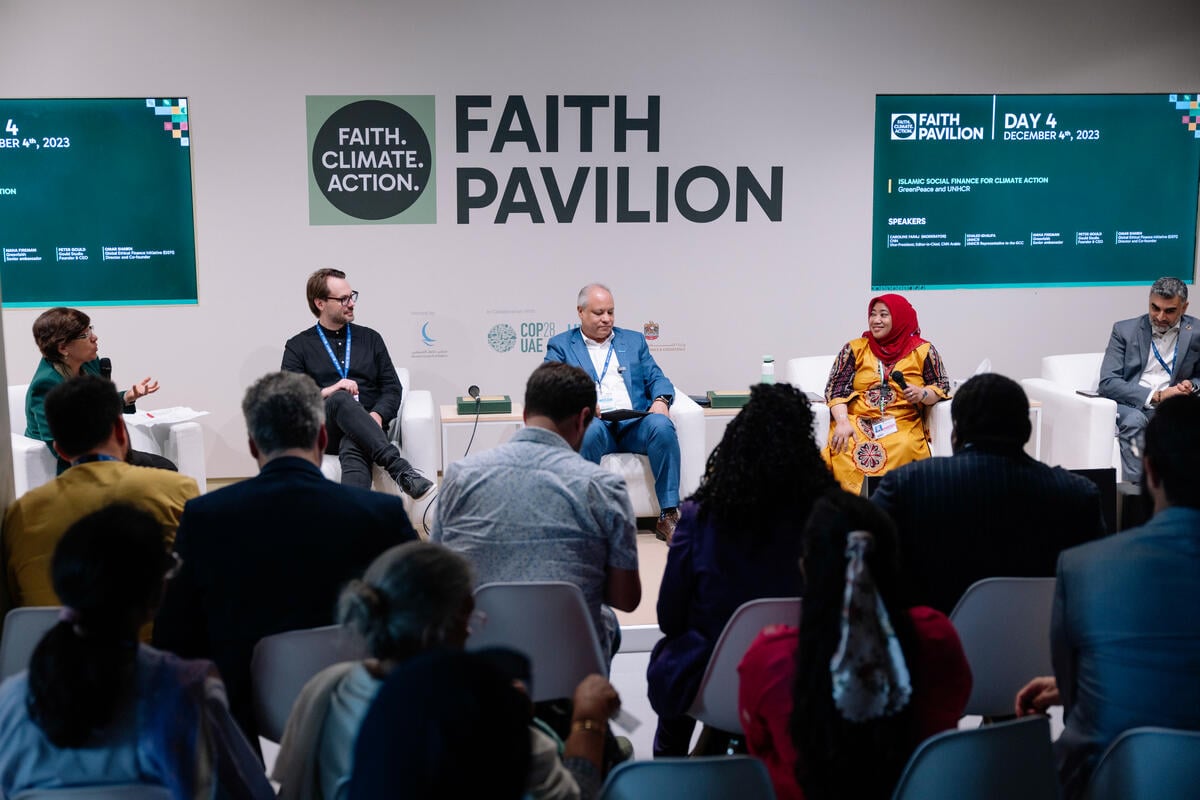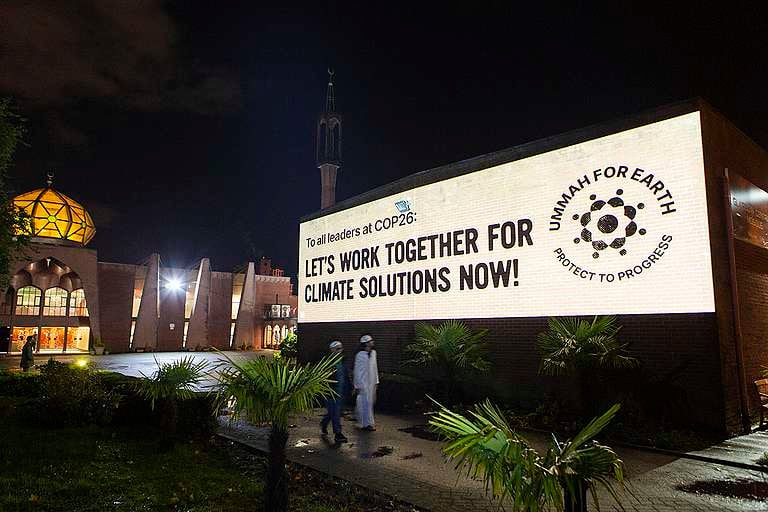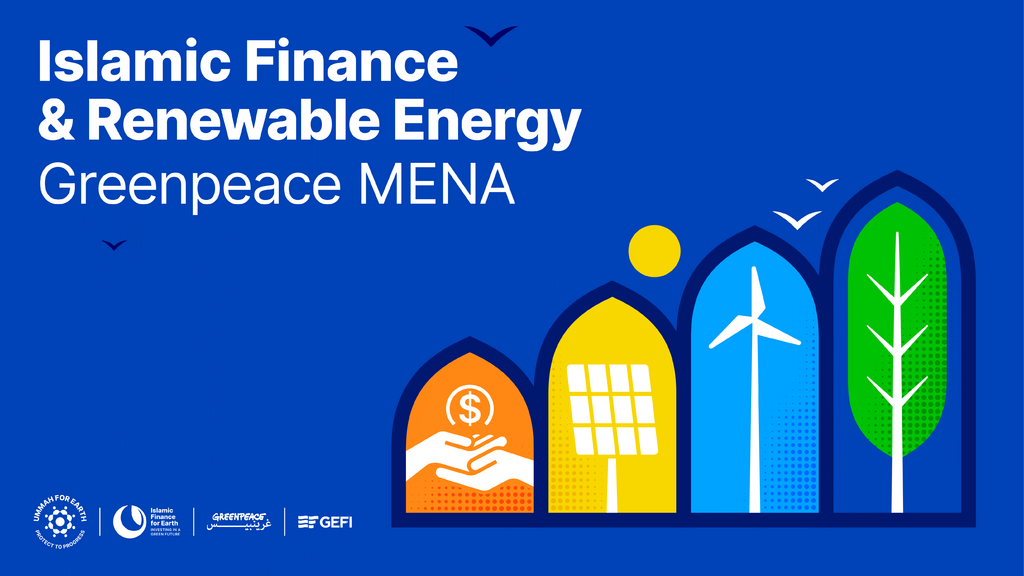Across the globe, Muslim communities find themselves disproportionately affected by climate change, with extreme weather events, rising food insecurity, and other climate impacts taking a toll on their livelihoods, cultural practices, and spiritual life.
In the last few years, devastating floods swept through Pakistan, affecting millions, displacing thousands, and leaving entire communities struggling to rebuild. In Indonesia, one of the world’s most populous Muslim-majority countries, rising sea levels threaten to submerge coastal villages and erode vital agricultural lands. Meanwhile, in parts of the Middle East and North Africa, persistent droughts and water scarcity are increasing pressures on already fragile ecosystems and economies.
The climate crisis is having a profound impact on the daily lives and religious practices of millions of people
These climate pressures extend beyond immediate threats to survival. Climate change has also begun affecting food security in Muslim-majority regions, especially during Ramadan, a holy month where fasting is practised from dawn until dusk. In communities already grappling with the impacts of droughts or floods, maintaining food stocks for Ramadan can become a significant challenge. In Somalia, where cycles of drought and flash floods have eroded food systems, many families are forced to navigate long-standing shortages, with climate-induced shocks compounding existing vulnerabilities.
Food insecurity is a worsening crisis as global warming affects harvests, disrupts fisheries, and drives up food prices, making the observance of Ramadan particularly strenuous, both physically and economically. This brings climate change into the daily lives and religious practices of millions in profound ways, reminding us that the climate crisis is as much a social and economic issue as it is an environmental one.
Islamic finance: a financial system grounded in ethical responsibility
Islamic finance has been operating in the global financial system for decades, providing an ethical foundation rooted in Islamic principles that promote fairness, social responsibility, and environmental stewardship.

Ethical banking is a core pillar of Islamic finance. Through principles like zakat (charity) and waqf (endowment for public good), Islamic finance encourages financial activity that uplifts communities, supports sustainable projects, and avoids investments in industries harmful to people and the planet.
Many Islamic financial institutions in countries like Malaysia, the United Arab Emirates, and Saudi Arabia already support projects aimed at protecting the environment and enhancing social welfare. Success stories are already emerging. Malaysia’s green sukuk initiative has mobilised billions for renewable energy projects, while the UAE’s recent US$3.9 billion in green sukuk issuance demonstrates growing momentum. Saudi Arabia’s Vision 2030 has allocated US$50 billion for renewable initiatives, targeting an emissions reduction of 278 million tons by 2030.
A US$400 billion opportunity for climate action
While Islamic finance principles already provide a framework that aligns well with sustainability, there is still much room to strengthen its role in addressing the climate crisis, enhancing resilience in vulnerable communities, and shifting investments towards clean, renewable energy.
A new report by Greenpeace Middle East & North Africa (MENA) (as part of the Ummah For Earth Alliance) and the Global Ethical Finance Initiative (GEFI), highlights the transformative potential of Islamic finance in accelerating the global transition to renewable energy and addressing the triple planetary crisis: climate change, pollution, and biodiversity loss.
The report shows that the Islamic finance industry continues its robust expansion, with assets projected to reach USD$ 6.7 trillion by 2027, and that a strategic allocation of just 5% toward renewable energy and energy efficiency initiatives could mobilise approximately USD$ 400 billion by 2030 – a transformative sum for climate-vulnerable regions.

Islamic finance can help foster climate-resilient infrastructure, restore and protect biodiversity, and finance climate adaptation projects in at-risk communities. By explicitly directing funds away from fossil fuels and into green energy projects, Islamic financial institutions like the Islamic Development Bank (IsDB) can lead by example, especially in regions that are both vulnerable to climate impacts and hold significant influence in the global fossil fuel market. These institutions must accelerate their commitment to renewable energy investments.
As climate impacts intensify, Islamic finance offers a bridge between faith-based values and practical climate solutions. The convergence of Islamic finance and climate action represents more than a financial opportunity – it’s a moral imperative aligned with Islamic principles of environmental stewardship (khalifah) and balance (mizan).
Islamic finance, grounded in ethical principles and community responsibility, has a unique role to play in the global climate movement, particularly in the Global South. For millions across the globe, this form of finance offers a culturally relevant and powerful instrument to not only protect their communities from the worsening climate crisis but to promote environmental and economic sustainability in ways that align with their beliefs. Islamic finance offers a bridge between economic strength and ethical stewardship, creating pathways toward a more equitable and sustainable world for all.

Your voice can transform Islamic fiance
Ask your Islamic bank to support increasing investments in renewable energy!
Source link
Mehdi Leman www.greenpeace.org

